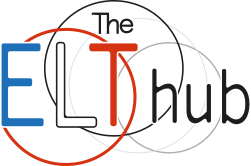CLIL Training
The ELT Hub is unique in France in its attention to the methodology of CLIL teaching (Content and Language Integrated Learning). Increasingly subject teachers are being asked to teach a subject such as economics, history, maths and sciences in English without much help in how to adapt their methodology to meet this new and considerable challenge. Language teachers are also often asked to move across into teaching a subject area on the basis that they can at least speak English.
Members of The ELT Hub have been involved for a few years now in training secondary school teachers in French Guyane in CLIL methodology, as well as school teachers in the Toulouse area. If you would like us to come and help your teachers develop their understanding and practice in CLIL contact us for a quote : jane.ryder@TheELThub.com
An example of our programme content
Stage One: Introduction to CLIL
- How to construct a CLIL lesson
- How to exploit classroom materials for both content and language
- How to make the CLIL classroom truely interactive
Stage Two: Developing a CLIL methodology
- This session will explore the techniques and resources for scaffolding instruction in a CLIL (Content and Language Integrated Learning) approach. It will examine how to help learners progress through structured lesson planning. This structured approach takes into account learners’ needs for specific support materials, particularly to enhance their oral and written communication skills, as well as their understanding and application of subject-specific concepts. The session will also address the possibility of individualizing instruction within a CLIL course.
- Preparing CLIL lessons
- To foster student autonomy and help them develop effective learning strategies.
Approach
For the second stage in particular we aim to get the teachers to reflect on their practice by getting the participants to try out new elements in their lessons and subsequently reflect on their effectiveness during the seminars. This cycle of action and reflection is essential as Richards reminds us “The practice of reflective teaching tells us that experience alone is not sufficient for professional development; but when experience is coupled with reflection it can be a powerful force for development in the teacher.
(Richards https://www.tttjournal.co.uk/uploads/File/back_articles/Towards_Reflective_Teaching.pdf)
At each stage, teachers will be encouraged to reflect on the implications of CLIL for their lessons, to try something new in their teaching, and then to reflect again on the success, or lack thereof, of their initiatives. Mentors will be available to guide their reflections and provide support.
Stage Three: Assessment for CLIL
- The objectives of assessment in CLIL
- Where to focus when assessing in CLIL.
- The different methodological options for assessment in CLIL
- The different methodological options for assessment in CLIL
- How to make sure the assessment process helps the learners
